- Home
- Aharon Appelfeld
All Whom I Have Loved Page 2
All Whom I Have Loved Read online
Page 2
“And do you remember your mother?”
“No. A few years ago, I could still remember some of her features, but now they're gone. I remember that she was short.”
“And was your father tall?”
“I don't remember. He died before my mother.”
Mother opened her eyes very wide, so as to take in the distant visions, but it didn't help. To my questions she answered, “I don't remember; what I recall is so hazy.”
I, at any rate, could imagine my mother's mother and father very clearly.
“I'm sorry, everything has faded from my memory,” Mother said, shrugging.
“I will remember the house in the country and the water in the river. And the lake,” I said for some reason.
“And me? Will you remember me, too?” she asked, suddenly putting me to the test.
“I'll remember you most of all.” I wanted to impress her.
“How will you remember me?”
“Swimming in the water.”
“Only swimming?”
“And wrapped in a large towel.”
“What else?”
“And the song ‘The Long Clear Nights of Summer’—the song you like to sing.”
“I'm happy.”
That night I slept soundly, but one clear image filtered into my sleep: Mother wearing a pure white nightdress.
4
Father came the next day and took me downtown. A month and a half in the country had effaced him from my memory. Father took long strides and I hopped along after him, getting tired. We stopped briefly, standing at a kiosk to drink some lemonade, and eventually we reached a café where Father loves to play chess. I find it hard to take his silence. It hurts me, and yet I still said, “Father,” trying to be closer to him.
“What?” He opened his eyes, as if I'd stopped the flow of his thoughts.
Father played chess and I gazed at him. This time he opened his mouth and spoke, hummed, and leaned toward his opponent in a gesture of goodwill.
“Where have you been, child?” Father's elderly friend turned to me.
“In the country with Mother.”
“And how was it there?”
“Good.”
Father raised his head and smiled, happy that I revealed something to him that he would never have asked about.
“Paul knows his multiplication tables very well; you can test him,” Father said.
“Seven times seven is what?”
I answered.
“I see that you're going to be even better than your father,” said the elderly man without even looking at me.
We walked a lot that evening, and we also went to the tavern. Father's mood improved and he hummed a folk song, keeping time with his foot. Before I went into the house, he told me that the following week, when he got his salary, he would buy me a pair of high, laced boots.
The parting from Father was not hard, and yet it was not forgotten easily. The sight of his face did not leave me even when I sat next to the table and Mother gazed at me. Once, I said to my mother, “I love Father,” and Mother's response was not slow in coming: “And don't you love me?” Since then I have chosen my words very carefully.
That night Mother told me that after I had left the house, a messenger delivered a letter to her with the news that she had been accepted as a teacher in a primary school in Storozynetz.
“Are we going there?”
“Of course.”
Only later did I understand that this was not really about a journey so much as it was about being pulled away from everything I knew, and then a dark fear gripped me. That night my mother told me a lot about Storozynetz and about the beautiful fields that surround the small city. It was that night that I heard the phrase “garden city” for the first time, and it stuck in my head.
The next day Father came in the afternoon. The sun was still shining, and we went for a walk by the river. On the way we met a man dressed in black who was carrying a suitcase. The man turned to my father and asked him something. Father answered in a language that I did not understand. Then the man opened the suitcase and showed Father what he was selling, and Father chose two pencils and paid him. They talked, or, rather, the man talked, and he sounded as if he was complaining. Father, in his usual way, said only a word or two. For a moment the face of the man wrinkled up and it seemed that he was about to burst into tears. I was wrong: he burst out laughing, and Father did, too. His face opened momentarily as a smile emerged from his eyes. The man did not stop but continued talking, and Father laughed heartily.
“Who's the man?” I asked only when we had gone some distance from him.
“A Jewish peddler.”
“What is a Jewish peddler?”
Father smiled as if I had embarrassed him, and said, “A peddler that belongs to the Jewish people.”
“Is it a large people?”
“Not really.”
“And everyone wears black?”
“No.”
Then we went into a tavern. Father gulped down a small shot glass, flirted with the waitress, and complimented her. The waitress did not blush. It was obvious she was used to compliments. After the tavern we went straight home, and Father uttered not a word the entire way.
5
Mother is packing feverishly. It's hard to know if she's happy. The apartment is very small, but it has a window that faces the park. In the afternoons, elderly people from the old-age home sit in the park. I stand at the window and gaze at them, and the more I gaze at them, the more I feel that their thoughts touch my thoughts.
Father doesn't come. I wait for him every afternoon. He is sick and is away. His absence, like his silence, pains me, and for tense hours I wait for him.
Mother stuffs utensils and clothes into the suitcases. The two suitcases are already full, and yet still she crams more into them. Her movements are full of force and bring to mind a destructive anger.
Later, a driver comes and loads the suitcases onto a wagon, then we climb up as well. It's the first time that I've ridden in a simple open wagon in the city. I feel as though everyone is looking at me. Mother, too, seems embarrassed, for she wears a broad-brimmed hat and sunglasses.
At the station, porters help us, taking the suitcases and the bags to the train. The porters are so tall and so broad that they seem like a different breed of people. Mother pays them, but they demand more, and Mother gives in to them without bargaining.
We sit in the second-class car and Mother's face is restored to her. She tells me that in the garden city we will have a large house with a porch and a garden. When Mother is comfortable she likes to describe things, and I can picture them vividly. Sometimes the place or the person doesn't bear any resemblance to what she has described, perhaps because when she gets enthusiastic she exaggerates. I love her exag-gerations—they suit her.
The journey passes quietly. Though there are some drunks in the car, there are no fights. We eat sandwiches and drink lemonade, and we gaze at the passing landscape. At one of the stations we get off and Mother buys me an icecream cone. It is pink and tasty and reminds me of another ice cream that I ate with Father in a remote place next to an old chapel.
Then I fall asleep, and in my sleep I see black peddlers like the ones I saw at the riverbank. They are huddled together next to a tall tree. When they discover me, they turn toward me and ask how Father is. I freeze in fear. I want to run away but my legs are tied.
I awake in fright and confusion. Mother kisses my forehead and rubs my shoulders to take away my bad dream. Whenever I have bad dreams, Mother says, “Every sleep has bad dreams. It's only a deception.” But what's to be done? The dreams awaken me even when they disappear. Sometimes they cling to me the entire day, returning at night, and sometimes I have a bad dream that goes on for an entire week.
While the train hurtles on, a man approaches Mother and addresses her by name. It turns out that he is an old acquaintance. He and Mother studied together at the teachers' seminary, and they haven't see
n each other for years. He immediately joins us and they become immersed in a lighthearted conversation. Mother knows how to make people happy, but her openness actually makes me sad. When she tells stories and gets enthusiastic she forgets me, and I feel neglected. Once, she met a friend from the orphanage, and she was so happy that she left me on a bench in the park. “Mother!” I shouted, but she didn't hear me. People gathered around me, asked my name, and offered me candies. I was in despair, and I shouted, “Mother! Mother!” Eventually she came back and collected me.
Now the strange man sits and chats with Mother; they laugh and recall lighthearted memories. I stare at the man's face and I can't find a single pleasing feature in it. He's shorter than Mother, bald, and he wears glasses. Apparently Mother doesn't see the defects that I see; she listens to him and they recall names and places that sound strange and unpleasant to me. It's hard for me to take this lightheartedness, and I want to shout, “Stop this chattering, it hurts me!” But of course I hold it in and don't say a word.
Eventually, I feel sick and I throw up. Mother hastens to my side and holds my forehead.
The train has stopped. We get off, and Mother rinses out my mouth with water. The stranger parts from Mother, wishing her good luck in her new position. The train goes on its way, and I'm glad that there is no longer anyone between me and my mother. I cry, and Mother, who does not understand my tears, says, “What's come over you? Does something hurt you?”
She doesn't know that I am crying from sheer happiness.
6
This time Mother has not exaggerated. The new house is large, and behind it a garden stretches all the way to the forest. “I told you,” Mother says, and there is a mischievous sparkle in her eyes. She will soon begin teaching, but in the meantime there is plenty of time for us to go on walks and outings. Although a small town, Storozynetz does have some splendid stores and a café. Behind the houses and the stores, the fields and the orchards go on and on, and the farther we get from the town, the more I feel my life expanding. It is good to be near Mother.
“Mother,” I say, and she holds my hand tightly.
In the afternoon we sit on the mat behind the house. The landlord comes by to ask if everything is all right and if we need anything. He's short and he speaks German with a heavy accent, but he has a kind face and it seems that we won't have any differences of opinion, as we did with the landlord in Czernowitz.
In the evening Mother lights the large oil lamp and the dusky kitchen fills with light. We eat only vegetables, fruit, and dairy products and do not touch meat. One mustn't kill animals, Mother once said. I'm afraid to look the cows in the pasture in the eye. They seem to know what their fate is and are asking me to save them.
Dinner lasts about an hour. In Czernowitz, Mother gave private lessons, with students arriving one after another and filling our small apartment with unquiet. At night, Mother would complain of headaches and would lie in bed with a damp cloth on her forehead. Now she doesn't complain. Her headaches seem to have stopped.
After dinner we sit in the bedroom, and Mother reads me Alice's Adventures in Wonderland. I'm so excited that Mother is near me that I find it hard to fall asleep. Even when I'm in bed, we go on talking. Mother reminisces about our vacation in the country, and suddenly all the images I stored up come to life. The river there wasn't deep or swiftly flowing, and perhaps this is why I remember it so well. I'm afraid that these clear images will be erased from my memory, and I repeat to myself: they won't be wiped away, they won't disappear, they will always be with me just as Mother will always be with me. But this very repetition stirs in me a deep sorrow that insinuates itself within me and resurfaces the next evening at twilight, when we come back from the street and stand in front of the house.
“Mother,” I say.
“What is it, my love?”
“Will we return to that village?”
“Why are you asking, my love?”
“I'm afraid that the village will disappear.”
“It won't disappear,” Mother says, and opens the door.
Even as our days are rich and overflowing, I discover that next door to us is a low structure, quite simple, surrounded by a fence, its yard full of bearded men.
“Who are they?”
“Jews.”
“What are they doing here?”
“They've come to pray.”
The bearded Jews frighten me, and when I stare at them from up close, they seem to be hiding something. Their movements are hasty and they're talking in whispers. I tell Mother what I'm thinking and she laughs, saying, “They're just like anyone else.”
Their prayer is also strange, a mixture of calls and shouts.
“That's the way they pray,” Mother says.
“Why are they shouting?”
“So that God will hear them.”
Meanwhile, we spend most of the day outside. We eat lunch in a restaurant, dressed in warm clothes. Sometimes it seems to me that we're only on vacation here, and that we'll soon return to Czernowitz. Sometimes, a man who looks exactly like my father passes us. I let go of Mother's hand and run toward him, but I realize immediately that I am mistaken. And when the evening is clear and there's no rain, we walk all the way down the main street and then on toward the fields. The fields are flat and open, and even if we walked the entire night, we would not reach the horizon.
7
As we became ever more enchanted with provincial life, Father appeared. He stood in the doorway, dressed in a gray suit, and I hardly recognized his swarthy face.
“Father!” I called.
His face lit up a bit.
Mother offered him a cup of coffee, but Father refused, saying: “I've come to see Paul; I'll bring him back by evening.”
It was strange: I had almost forgotten him.
“And how is it here?” he asked when we were out of the house.
“It's good.”
We crossed the main street and strolled around the alleyways. Eventually we went into the café where I had sat with Mother. The cloud seemed to lift from Father's face, and I saw that he was squinting, as if he were unused to the light.
I couldn't bear his silence, and I asked: “How was the journey here, Father?”
“Splendid,” he answered, and it was obvious that he wanted to make me happy.
One evening Mother revealed to me that Father had been a painter and was successful when he was young, but that later on he had stopped painting. Now, for a living, he taught art at a high school. He didn't enjoy his profession, and most of the time he was very depressed.
“What's depression?” I fumbled like a blind person. Mother explained this word in different ways, but her explanations clarified nothing for me. Much later I envisioned Father pressed between two iron boards and felt a pain in my chest.
I sat in the café with Father. He drank a cup of coffee and smoked a cigarette. It was hard for me to imagine Father without a cigarette; sometimes it stayed stuck to his lower lip. “In another week the school year starts,” he said, and I felt that this burden weighed heavily upon him. I tried to picture him sitting and painting. It was easier to imagine him looking at a painting than painting. When he looked at a painting he had a sour expression, as if there were a serious defect in it.
Father sat next to me and didn't speak. In my imagination, I recalled the places he'd taken me. The chapels, of course. He was extremely fond of these little shrines where passersby stopped to pray. Once, he said to me: “The icons in the chapels are so beautiful, it's only natural that they be used by those who worship God.”
Mother also told me that in recent years Father had become addicted to drink, and that he squandered most of his salary on it. It was hard for me to picture Father staggering and cursing in the streets like the drunks whom we came upon every Saturday evening.
When we left the café, we walked all the way down the main street again. It was clear that Father did not like the provinces. I tried to pull him toward the fields, but he r
efused, shrugging. We wandered around the houses and the stores. Finally we went into a tavern. Father gulped down two shot glasses and said, “That's more like it.”
When we arrived home, Father kissed me on my forehead but did not come into the house. He seemed a little more stooped, and his long arms hung limply. I wanted to call out, “Father, when will we meet again?” But I didn't manage to—he was already far off.
I watched how he walked. At first he walked in the middle of the street and kept turning his head to the side, and the farther he went, the clearer it was to me that he was looking for shelter from the harsh light in the street. Finally, he turned onto a dark side street and disappeared.
When I came in, Mother asked, “How was it?”
“We walked around,” I answered.
Only later did I feel the touch of Father's fingers, as if he were still holding my hand. I tried to remember what he had said to me, but I could recall nothing. His unmoving eyes continued to gaze at me for a long time.
Mother was making posters for her classes for the coming school year. I was glad that she left me alone and did not ask anything more. Each meeting with Father left me mute, as if he had poured his silence into me. Sometimes it seems to me that I'm like him, but when Mother holds out her hand to me, her mouth open and her eyes laughing, I immediately meld into her joyfulness.
8
I dreamed a dream, and in my dream I saw Father becoming more and more distant from me. He was taller than his usual height, and he towered like a giant over everyone in the street. People stared at him, as if he were some marvel that had sprung up before their very eyes. I stood at a distance and also marveled, but as he came nearer, Father seemed to shrink more and more, and people ceased paying attention to him, and eventually he disappeared into the darkness.
Shocked and frightened, I awoke. I remembered the dream clearly and I told it to Mother. Mother hugged me and said, “It's a dream, it'll pass.” And she closed her eyes. I felt a distance in her words, perhaps because she hadn't heard me out. I gazed at her sleeping face, and I was astonished that she didn't sense that I was awake. “Mother,” I called, but she didn't answer.

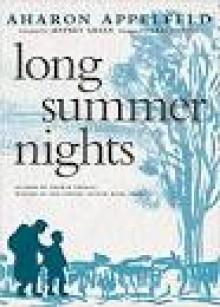 Long Summer Nights
Long Summer Nights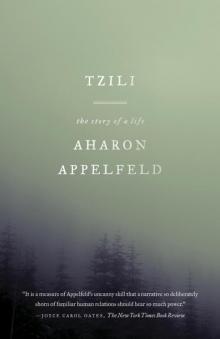 Tzili
Tzili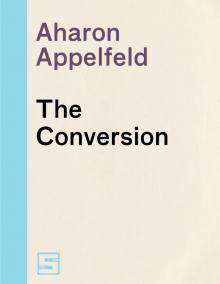 The Conversion
The Conversion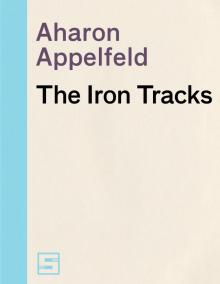 The Iron Tracks
The Iron Tracks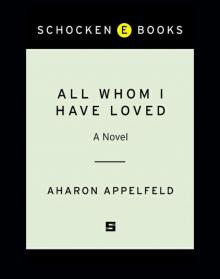 All Whom I Have Loved
All Whom I Have Loved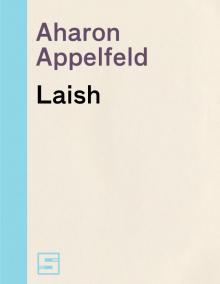 Laish
Laish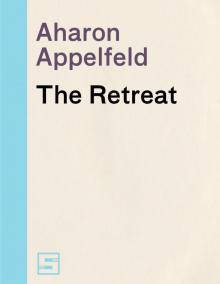 The Retreat
The Retreat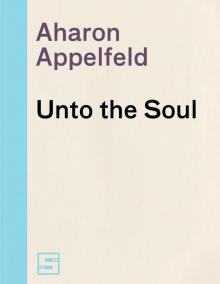 Unto the Soul
Unto the Soul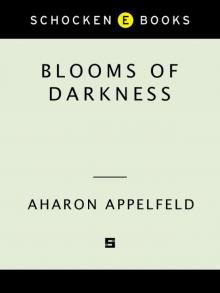 Blooms of Darkness
Blooms of Darkness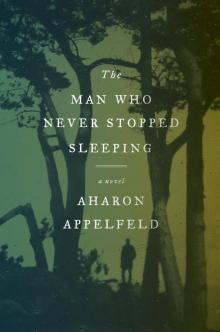 The Man Who Never Stopped Sleeping
The Man Who Never Stopped Sleeping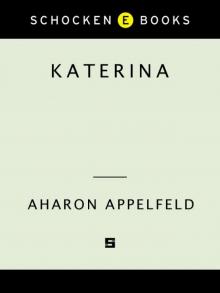 Katerina
Katerina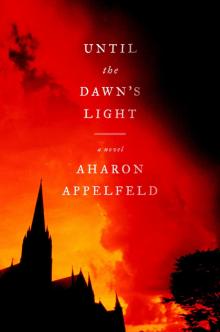 Until the Dawn's Light
Until the Dawn's Light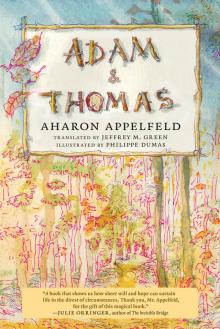 Adam and Thomas
Adam and Thomas Suddenly, Love
Suddenly, Love